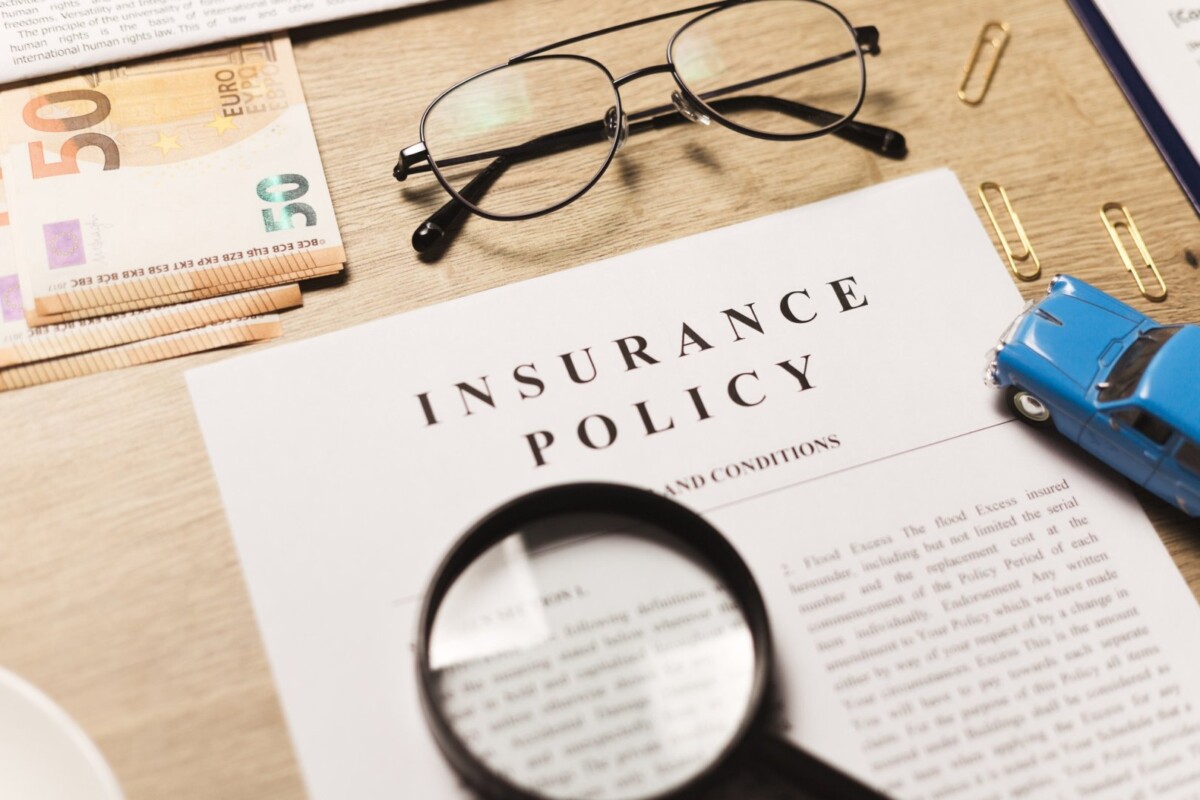
Understanding the Basics: What is Recommended for Car Insurance Coverage?
When it comes to safeguarding your vehicle and financial well-being, understanding what is recommended for car insurance coverage is crucial. Many drivers find themselves puzzled by the myriad of options available. However, with the right guidance, you can confidently choose a policy that suits your needs and budget.
Key Components of Car Insurance Coverage
- Liability Coverage: This is often mandatory and covers damages or injuries you cause to others in an accident. It’s essential to have enough to protect your assets.
- Collision Coverage: This covers damage to your car from collisions, regardless of fault. It’s particularly beneficial for newer or high-value vehicles.
- Comprehensive Coverage: Protects against non-collision incidents like theft, vandalism, or natural disasters. It’s advisable if you live in areas prone to such risks.
Additional Considerations
- Uninsured/Underinsured Motorist Coverage: Offers protection if you’re hit by a driver without adequate insurance.
- Personal Injury Protection (PIP): Covers medical expenses for you and your passengers, regardless of fault.
By understanding these components, you can tailor your policy to ensure comprehensive protection, giving you peace of mind on the road.
Why Minimum Coverage May Not Be Enough for Your Needs
When considering what is recommended for car insurance coverage, it’s crucial to understand that minimum coverage might not fully protect you. Many drivers opt for the least amount of insurance required by law, thinking it will save them money. However, this decision can lead to significant financial burdens if an accident occurs.
Understanding the Risks
Minimum coverage often only includes liability insurance, which covers damages to others if you’re at fault. But what about your own vehicle or medical expenses? Without comprehensive or collision coverage, you could face hefty repair bills or medical costs.
Benefits of Comprehensive Coverage
- Protection Against Uninsured Drivers: Comprehensive plans often include uninsured motorist coverage, safeguarding you if the other driver lacks insurance.
- Coverage for Natural Disasters: Events like floods or hailstorms can cause significant damage, which minimum coverage won’t address.
Making an Informed Decision
Ultimately, choosing what is recommended for car insurance coverage involves assessing your personal needs and potential risks. By opting for more than the minimum, you ensure peace of mind and financial security, protecting yourself from unforeseen circumstances.

Searching for affordable auto insurance? Head over to FreeAutoInsuranceQuotes to compare quotes and save on your policy! Have questions? Call us at 833-211-3817 for immediate assistance!
Comprehensive vs. Collision: Which Coverage Should You Choose?
When it comes to safeguarding your vehicle, understanding what is recommended for car insurance coverage can be a game-changer. The dilemma often boils down to choosing between comprehensive and collision coverage. Both offer unique benefits, but how do you decide which is right for you? Let’s dive into the details to help you make an informed decision.
Understanding Comprehensive Coverage
Comprehensive coverage is like a safety net for your car, protecting it from non-collision-related incidents. This includes damage from natural disasters, theft, vandalism, and even hitting an animal. It’s a broad form of protection that ensures peace of mind when the unexpected occurs.
- Pros:
- Covers a wide range of incidents
- Essential for areas prone to natural disasters
- Cons:
- Can be more expensive
- May not be necessary for older cars
Exploring Collision Coverage
Collision coverage, on the other hand, focuses on accidents. It covers damages to your vehicle resulting from collisions with other cars or objects, regardless of who is at fault. This type of coverage is crucial if you’re frequently on the road or have a newer vehicle.
- Pros:
- Protects against accident-related damages
- Ideal for newer or financed cars
- Cons:
- Does not cover non-collision incidents
- Higher premiums for high-risk drivers
Ultimately, what is recommended for car insurance coverage depends on your personal circumstances. If you live in an area with high theft rates or frequent natural disasters, comprehensive coverage might be your best bet. However, if you have a newer car or drive often, collision coverage could be more beneficial. Consider your needs, budget, and driving habits to make the best choice for your situation.
How to Determine the Right Amount of Liability Insurance
When it comes to car insurance, understanding what is recommended for car insurance coverage can be a bit overwhelming. Many drivers find themselves asking, “How much liability insurance do I really need?” The problem is, without the right coverage, you could be left financially vulnerable in the event of an accident. The promise here is that by understanding your options, you can make informed decisions that protect both your assets and peace of mind.
Assessing Your Needs
To determine the right amount of liability insurance, start by evaluating your personal circumstances. Consider factors such as your financial situation, the value of your assets, and your driving habits. If you own significant assets, higher liability limits are advisable to protect against potential lawsuits.
State Requirements vs. Personal Needs
- Minimum Coverage: Each state mandates a minimum amount of liability insurance, but this is often not enough to cover serious accidents.
- Personalized Coverage: Opt for coverage that exceeds state minimums to ensure comprehensive protection. Consider additional coverage options like uninsured motorist protection.
Balancing Cost and Coverage
Finding the right balance between cost and coverage is crucial. While higher coverage limits mean higher premiums, they also offer greater protection. Compare quotes from different insurers to find a policy that fits your budget without compromising on essential coverage.
Exploring Additional Coverage Options for Peace of Mind
When it comes to safeguarding your vehicle, understanding what is recommended for car insurance coverage can be overwhelming. Many drivers focus solely on basic liability, but is that enough? The problem is, unexpected events can lead to significant financial strain if you’re not adequately covered. The promise of exploring additional coverage options is peace of mind, knowing you’re protected against the unforeseen.
Why Consider Additional Coverage?
Basic liability insurance covers damages to others in an accident, but what about your own vehicle? Additional coverage options, such as collision and comprehensive insurance, ensure that your car is protected from accidents, theft, and natural disasters. These options provide a safety net, reducing out-of-pocket expenses when incidents occur.
Types of Additional Coverage
- Collision Coverage: Pays for damages to your car from a collision, regardless of fault.
- Comprehensive Coverage: Covers non-collision-related incidents like theft or weather damage.
- Uninsured/Underinsured Motorist Coverage: Protects you if you’re hit by a driver with insufficient insurance.
By understanding what is recommended for car insurance coverage, you can make informed decisions that align with your needs and budget, ensuring comprehensive protection for your vehicle.
The Role of Deductibles in Car Insurance: What You Need to Know
When considering what is recommended for car insurance coverage, understanding deductibles is crucial. Deductibles are the amount you pay out-of-pocket before your insurance kicks in. Choosing the right deductible can significantly impact your premium costs and financial security. Let’s dive into how deductibles work and what you should consider when selecting one.
Understanding Deductibles
- Low Deductibles: Opting for a low deductible means you’ll pay less when filing a claim, but your monthly premiums will be higher. This option is ideal if you prefer predictable expenses and want to minimize out-of-pocket costs in case of an accident.
- High Deductibles: A high deductible lowers your monthly premium, which can be beneficial if you’re a safe driver and want to save on insurance costs. However, it requires you to have enough savings to cover the higher out-of-pocket expense if an accident occurs.
Factors to Consider
- Driving Habits: If you drive frequently or in high-traffic areas, a lower deductible might be safer.
- Financial Situation: Assess your ability to pay a higher deductible in an emergency.
- Vehicle Value: Expensive cars might benefit from lower deductibles to reduce repair costs.
Choosing the right deductible is a balancing act between your financial comfort and risk tolerance. By understanding these factors, you can make an informed decision about what is recommended for car insurance coverage.
How Your Driving Habits Influence Recommended Car Insurance Coverage
Have you ever wondered what is recommended for car insurance coverage based on your driving habits? Whether you’re a daily commuter or an occasional driver, understanding how your habits influence your insurance needs is crucial. By tailoring your coverage to your lifestyle, you can ensure you’re adequately protected without overpaying. Let’s explore how your driving habits can shape your insurance recommendations.
Frequency of Driving
- Daily Commuters: If you’re on the road every day, consider comprehensive coverage. This protects against theft, vandalism, and weather damage, in addition to accidents.
- Occasional Drivers: For those who drive less frequently, a basic liability policy might suffice, but ensure it meets state minimum requirements.
Driving Environment
- Urban Areas: City driving often involves more traffic and higher accident risks. Opt for higher liability limits and collision coverage.
- Rural Areas: With fewer cars but more wildlife, comprehensive coverage is beneficial to cover animal-related incidents.
Driving Record
Your past driving record significantly impacts what is recommended for car insurance coverage. A clean record might qualify you for discounts, while a history of accidents could necessitate higher coverage limits to protect against potential liabilities. Regularly reviewing your driving habits and adjusting your coverage accordingly can lead to both savings and peace of mind.
What is Recommended for Car Insurance Coverage? A Guide for New Drivers
Embarking on the journey of car ownership is exciting, but it comes with the responsibility of understanding what is recommended for car insurance coverage. Many new drivers feel overwhelmed by the myriad of options available. Fear not! This guide will simplify the process, ensuring you make informed decisions that protect you and your vehicle.
Understanding Basic Coverage
Before diving into specifics, it’s crucial to grasp the basics of car insurance coverage. At a minimum, most states require liability insurance, which covers damages to others if you’re at fault in an accident. However, this is just the starting point.
- Liability Insurance: Covers bodily injury and property damage to others.
- Collision Coverage: Pays for damage to your car from collisions.
- Comprehensive Coverage: Protects against non-collision incidents like theft or natural disasters.
Additional Coverage Options
Beyond the basics, there are additional coverages that can offer more peace of mind:
- Uninsured/Underinsured Motorist Coverage: Protects you if you’re hit by a driver without adequate insurance.
- Personal Injury Protection (PIP): Covers medical expenses regardless of who is at fault.
- Roadside Assistance: Provides services like towing and battery jump-starts.
Tailoring Your Coverage
When considering what is recommended for car insurance coverage, tailor your policy to fit your needs. Evaluate factors like your car’s age, your driving habits, and your financial situation. For instance, if you drive an older car, you might skip collision coverage to save money. Always balance cost with adequate protection to ensure you’re covered in any scenario.
How FreeAutoInsurance Can Help You Find the Best Car Insurance Coverage
Finding the right car insurance can feel overwhelming, but it doesn’t have to be. With so many options available, understanding what is recommended for car insurance coverage is crucial. At FreeAutoInsurance, we simplify this process, ensuring you get the best coverage tailored to your needs.
Understanding Recommended Coverage
When considering car insurance, it’s essential to know the different types of coverage available. Typically, experts recommend a combination of liability, collision, and comprehensive coverage.
- Liability Coverage: Protects you if you’re at fault in an accident, covering damages to others.
- Collision Coverage: Pays for damages to your car from a collision, regardless of fault.
- Comprehensive Coverage: Covers non-collision-related incidents like theft or natural disasters.
Why Choose FreeAutoInsurance?
FreeAutoInsurance offers a streamlined approach to finding the best car insurance coverage. We provide personalized quotes, ensuring you get the most competitive rates. Our platform allows you to compare options easily, helping you make informed decisions without the hassle.
Benefits of Using Our Services
- Time-Saving: Quickly compare multiple quotes in one place.
- Cost-Effective: Find the best deals tailored to your budget.
- Expert Guidance: Access to knowledgeable agents ready to assist you.
By choosing FreeAutoInsurance, you’re not just getting insurance; you’re gaining peace of mind knowing you’re covered adequately. Let us help you navigate the complexities of car insurance with ease.
FAQ
- What is the recommended minimum car insurance coverage?
The minimum coverage varies by state, but most experts recommend carrying at least:- Liability Coverage: 100/300/50 (i.e., $100,000 per person, $300,000 per accident for bodily injury, and $50,000 for property damage).
- Uninsured/Underinsured Motorist Coverage: To protect against drivers with no or insufficient insurance.
- Comprehensive and Collision Coverage: Especially for newer or financed vehicles.
- Do I need comprehensive and collision insurance?
If your car is financed or leased, your lender may require both. If you own your car outright, consider it if your vehicle is worth more than a few thousand dollars. - How much uninsured motorist coverage should I carry?
Experts recommend matching your uninsured motorist coverage to your liability limits to ensure full protection in case of an accident with an uninsured driver. - Should I choose a higher deductible?
A higher deductible (e.g., $1,000 instead of $500) can lower your premium but means you’ll pay more out-of-pocket if you file a claim. - Is personal injury protection (PIP) or medical payments (MedPay) coverage necessary?
If you lack health insurance or have high deductibles, PIP or MedPay can help cover medical expenses after an accident. PIP is required in some no-fault states.
Take the next step toward affordable coverage. Visit FreeAutoInsuranceQuotes and get instant quotes that fit your budget and driving needs. If you’d like to speak with a representative, call us at 833-211-3817!
Explore NewAutoInsurance to find a wide range of insurance options tailored to your needs


